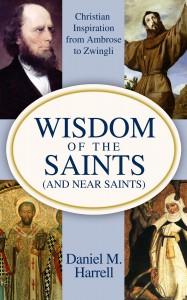In circles wherein I tend to travel, this existential question, along with its companion query on human consciousness, serves as a theological bulwark against which atheism crumbles. So naturally I was drawn to Jim Holt’s bestseller on the question. Serving as an “existential detective,” Holt seeks first to define “nothing” (no small task), and then proceeds to engage a number of philosophers and others regarding our existence.
It’s been a mind-numbing slog, mostly because what may be a simple question to ask proves almost impossible to frame.
One issue that Holt takes up in the assumption that the simple answer is most likely the truer answer. Again, theologians have counted on this maxim for centuries since to say “God did it” serves as the simplest answer of all (unless you actually believe in God, that is). The theological assumption follows the existential premise that nothingness is simpler than something and therefore must be the default state of things. Philosopher of science Adolf Grünbaum from the University of Pittsburgh forcefully pushes back. The existential premise is itself theological, deriving from the second century doctrine of creation that asserts the Lord created the heavens and earth ex nihilo, out of sheer nothingness. Grünbaum complained:
“I’ll grant that nothingness may be the simplest conceptually. But even if it is, why should this simplicity— this presumed simplicity— mandate the realization of the Null World in the absence of an overriding cause? What makes simplicity into an ontological imperative?” It has become a “veritable mantra that the simplicity of nothingness makes it objectively more probable. “Certain scientists and philosophers gawk at the world and say, ‘We just know that simpler theories are more likely to be true.’ But that’s just their psychological baggage, their heuristic mode. It has nothing at all to do with the objective world. Look at chemistry. In ancient times, Thales held that all chemistry was based on a single element, water. When it comes to simplicity, Thales’s theory wins hand over fist against Mendeleyev’s nineteenth-century ‘polychemistry,’ which posits a whole periodic table of elements. But Mendeleyev’s theory is the one that matches reality.” Holt, Jim (2012-07-09). Why Does the World Exist?: An Existential Detective Story (pp. 69-70). Norton. Kindle Edition.
I find some comfort in this. As one who has never thought God to be a simple answer to anything, I appreciate that the complex reality we inhabit might actually (and more accurately) testify to a God whose ways defy my own ability to explain. Grünbaum, of course, would ask why we need explanations? Not a bad question coming from a devout atheist.












